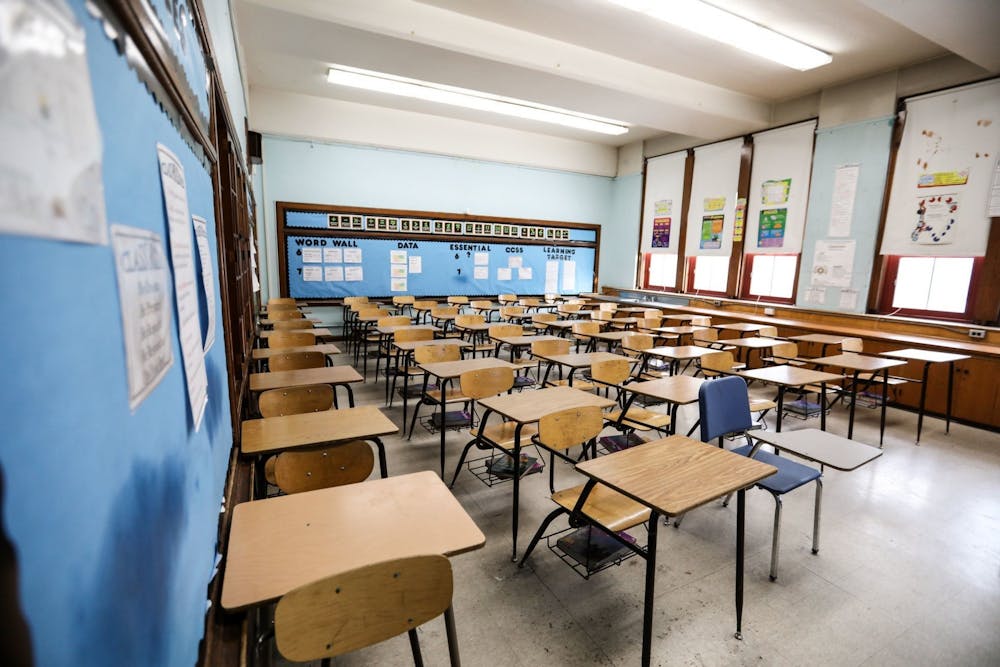An Institute for Education Sciences study, released on March 1, found that one in six students who majored in education at state colleges and universities in Indiana have become educators in state public schools. Faculty at the IU School of Education found this data both disappointing and surprising.
Jill Shedd, assistant dean for teacher education, said studies done in the School of Education don’t show similar results to the study because they see a majority of their graduates pursue teaching after graduation.
Shedd said that 98% of School of Education graduates are either employed after graduation or continuing their education. She said of that number she would predict that about 90% of those graduates are teachers.
Shedd says the data from the IES study and the School of Education data might differ because the School of Education strongly encourages students to get experience in classrooms before graduation.
“Our students spend a good amount of time in classrooms throughout their undergraduate program and we have very strong partnerships with school corporations in the region and across the state as well,” Shedd said. “We're one of the few state institutions that place student teachers all over the state of Indiana.”
While most students in the School of Education go on to become educators, some still worry about taking the career path.
IU senior Brian Loring, an education major, said he thinks students worry about going into the field because the state of Indiana doesn’t treat public school teachers fairly. He says this doesn’t affect the likelihood of him pursuing a career in education, but he still wishes that there was more support for public education from organizations and government officials in the state.
“The conditions in Indiana are not great — at least in public schools — for teachers,” Loring said. “They're not getting paid that well compared to other states that are close by. I know in Illinois the pay is higher there. Among my friends that are in the School of Ed, we've talked about how we probably won't get paid much if we teach here.”
Loring says he believes the state needs more advocacy for public education to improve this problem. He says this would include giving more power to teachers unions and providing better funding for schools.
“If there was more organization, and if our leaders would actually listen to teachers, then it would encourage people to go into public education, but that's also coming from someone that appreciates the job that unions do.”
The study also showed students of color are even less likely to become teachers than education majors who are white. According to the IES study, students of color made up 12% of education majors, but only half of those students ended up getting a teaching license in the state.
Jeffrey Anderson, the associate dean for undergraduate education at the School of Education, says he believes the absence of diversity in education is due to systemic racism and a lack of support for public education. He says to get more public school teachers and a more diverse teaching force, the country should stop basing success on standardized test scores and must make uplifting public education a top priority.
“For at least 10 years, the field of education, public education in particular, has been under attack by leadership in this country, both from the left and from the right,” Anderson said.
Anderson said that there is a shortage of teachers in the U.S., and to avoid this schools should provide more scholarships and grants for those looking to be education majors. He also said the state and country should provide more opportunities for getting an education degree to students, particularly students of color, who want to become teachers in public schools.
“We need to all be in this together because everybody has interacted with a public school teacher and they are so foundational to everything we do,” Anderson said.




